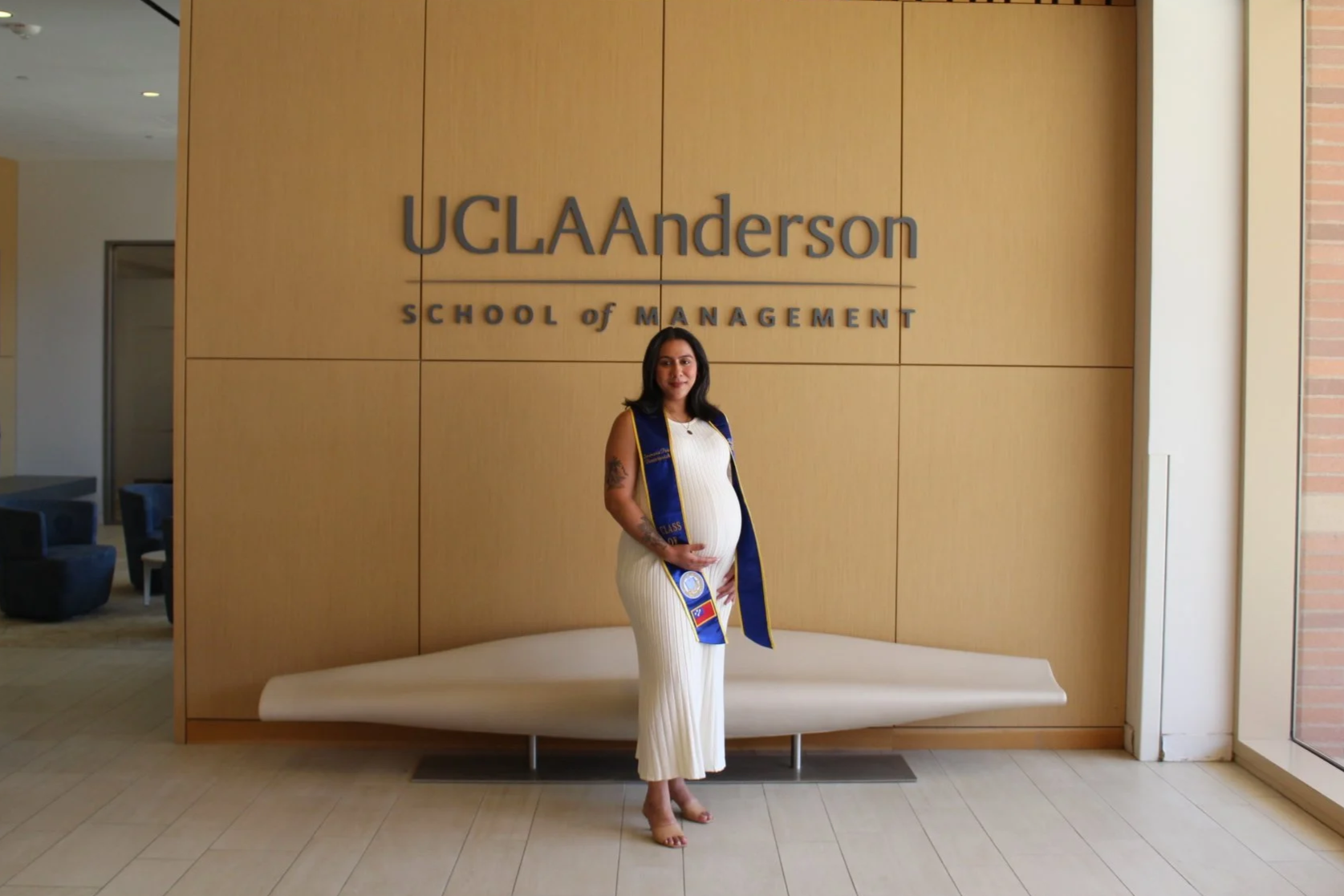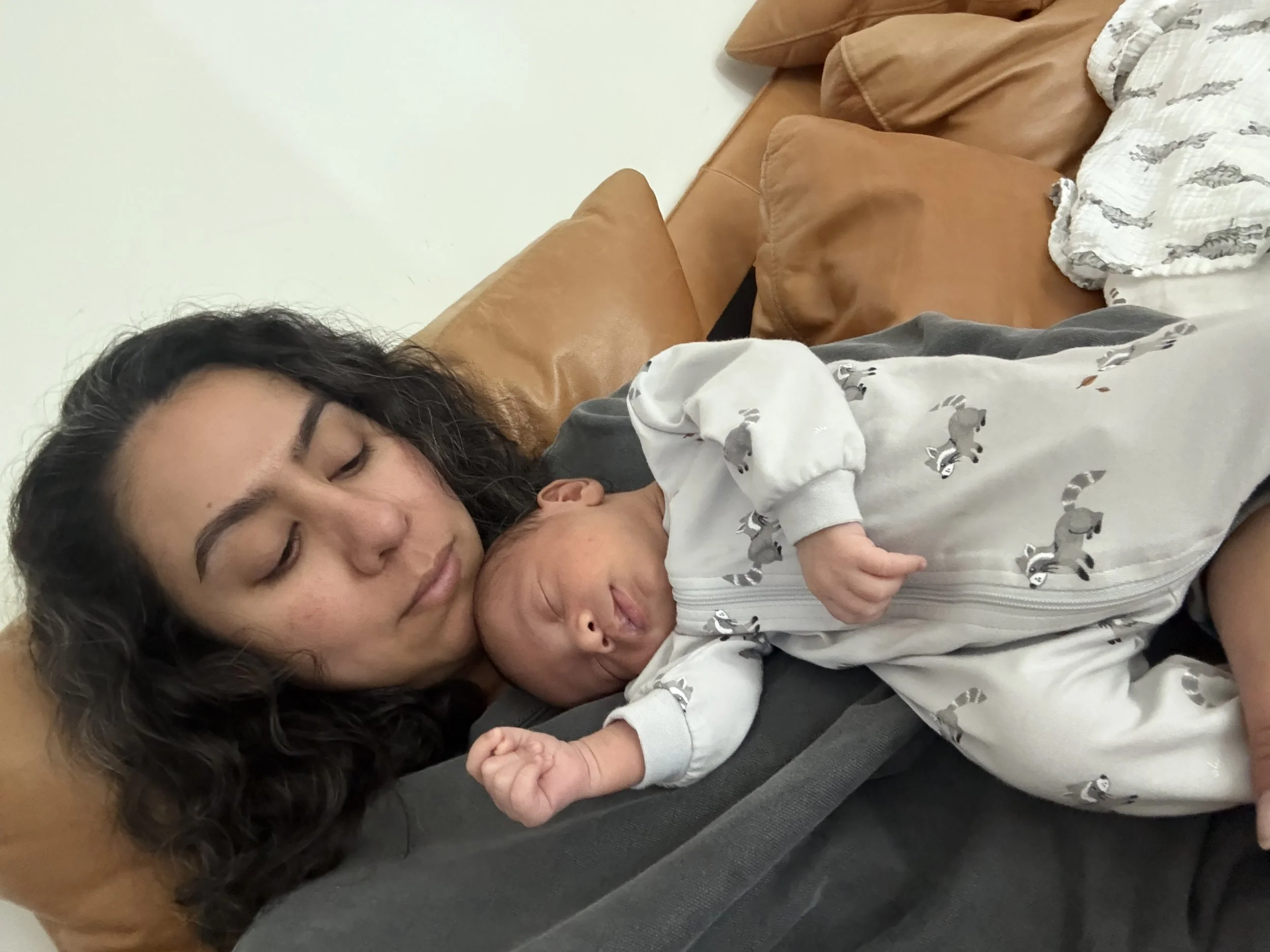Between Wake Windows: MBA Reflection
This past June I received my MBA from UCLA Anderson School of Management. Less than a month later, on the second of July, just before midnight, I delivered my son Wesley Maniamanaoga Mclaurin. The weeks that followed have been a pressure test of physical stamina (read: sleep deprivation), emotional capacity, and deep reflection—nothing makes you contemplate life more than giving it.
However, despite being at the pinnacle of my educational achievement, I’ve only just begun my journey into parenthood. So rather than try to draw parallels between receiving an M.B.A. and becoming an M-o-m, I’ve spent the last few months—in between wake windows or while tethered to a pump (IYKYK)—reflecting on the past three years.
People would often ask me, “How do you balance working full-time and attending business school?” This sentiment only became more pervasive when my belly popped Winter quarter this year. To be honest, I shared similar reservations. Prior to grad school, my career took center stage; I willingly invested most of my free time thinking about or doing work. Once school started, I quickly learned it was less about finding more time and more about better managing my time. This shift in mindset significantly changed the way I worked and reframed my role as a leader.
“...it was less about finding more time and more about better managing my time.”
Over the years, I’ve had the good fortune of working with designers early in their careers. What I love most about this stage of development is their uninhibited imagination and eagerness to learn. However, product teams are not always conducive to the creative process—which often requires longer runways than typical sprint cycles allow. As a result, I am perhaps more protective of my team's time and workload than I would be if I were managing senior designers. To help them focus, I would take on smaller and ad hoc requests. To streamline their workflow, I would collect and manage incoming assets. To mitigate communication lapses, I would organize and facilitate cross-functional planning meetings. What I initially believed to be good project management was, in hindsight, poor performance management, resulting in hours of additional work for me, and missed learning opportunities for them.
Through Anderson’s coursework in Organizational Behavior and General Management, I’ve become more effective at delegating and less prescriptive in my approach. Instead of absorbing emergent requests, I work with stakeholders ahead of quarterly planning to ensure the pipeline and timeline of deliverables align across teams, negotiating tradeoffs when needed. I removed myself from asset management entirely, delegating back to my team. Eliminating the intermediary created space for organic collaboration within cross-functional teams. And with improved communication lines, I focus my efforts on coaching instead of facilitating, helping them anticipate problems, manage and respond to feedback, and develop confidence in their approach.
What was initially a question of prioritization ultimately became a lesson in trust. As I navigate the joys of new parenthood and evolving management responsibilities, I am humbly reminded that the conditions for growth are simple: a safe and supportive environment to learn and the encouragement to do so. UCLA Anderson was that space for me, and I hope to be that for my team.



